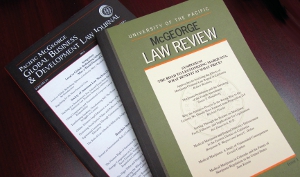Law as Language [reviewing PETER M. TIERSMA, LEGAL LANGUAGE (1999)]
Document Type
Book Review
Publication Date
1999
Abstract
The jacket of Professor Peter Tiersma’s book Legal Language illustrates the problem inherent in a linguistic study of legal language. The jacket features a legal document in fine print, with an overlay of a magnifying glass that brings some of the indecipherable words into focus. The problem, of course, is that a scholar conducting a linguistic study of language does not have access to a distinct "magnifying glass" that can posit language as an object; he can study language only with language.
Tiersma attempts to avoid the most difficult problems of self-reference that follow from the "interpretive turn" in social studies by pursuing a carefully delimited project. He argues that legal language has diverged from ordinary language, and therefore can be assessed by comparing it to ordinary language. His thesis is that "legal language can and should be much less arcane and ponderous, and much more understandable, than it now is." In other words, he argues that legal discourse should employ ordinary language to a much greater extent if law is to serve its social purposes.
On its own terms, the book is a success. Some legal documents (standard form contracts, statutes, formulaic wills and trusts, etc.) are easily lampooned for their verbosity, redundancy, complexity and archaisms. Tiersma’s book provides an accessible and helpful reminder of this fact by identifying some of the worst examples of legal language and providing general explanations of how these examples are sustained in modern legal practice. But this theme is old news. I can’t imagine that there is a lawyer, judge or law professor today who would advocate using cumbersome and archaic language instead of so-called plain English, even if their practice involves all too frequent relapses. Legal language is like an ornate pastry: we know that often it is impressive in appearance but disappointingly lacking in substance, yet we can’t help reaching for it again and again.
Tiersma’s effort to avoid certain topics in the interest of simplicity and focus is not entirely successful. In his Acknowledgments, he admits that his linguistic approach necessarily leaves out the important insights of literary theory, rhetoric and semiotics, and he concedes that he gives only brief attention to the important linguistic topic of the pragmatics of meaning. At the risk of appearing to be a spoil sport by reviewing the book that he expressly chose not to write, I want to identify how his uncontroversial plea for a renewed commitment to using plain English in legal discourse uncovers more difficult and subtle problems.
Publication Title
Jurist
Volume
2
Issue
7
Recommended Citation
Reviewing Peter M. Tiersma, Legal Language, Chicago, IL: University of Chicago Press, 1999; Law as Language, Jurist: Books on Law, Vol. 2, No. 7 (September 1999)



